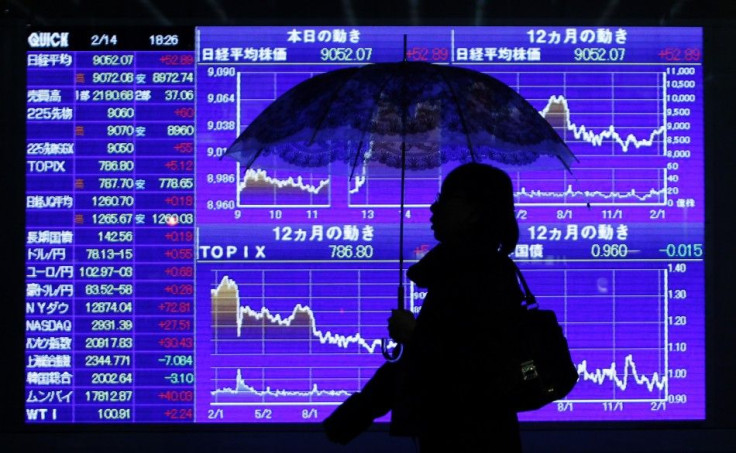Weekly Roundup: Asian Markets Slump On Euro Zone Concerns, Weak US Data

Asian markets fell this week as they succumbed to the pressures of the euro zone debt crisis and the economic data about the US missing estimates.
The Chinese Shanghai Index dropped 2.1 percent and the Japanese Nikkei fell 3.8 percent. Hong Kong's Hang Seng Index plunged 5.1 percent and India's BSE Sensex slumped 0.86 percent.
Persistent concerns over political developments in Europe have kept the Asian markets in the red. Renewed concerns over the euro zone's future have brought a return in risk aversion, which has led to net outflows of capital from Asia in recent weeks, according to Sukhy Ubhi of Capital Economics.
There was no encouraging news to lift the markets from Greece, which is currently run by a caretaker government and is waiting for fresh elections to be held in June. There are concerns that parties opposing the austerity measures will gain a majority in the re-election.
The likelihood of Greece's eventual exit from the euro zone and from the single currency will be compounded by a Greek banking collapse and possibly further sovereign debt defaults. There is considerable uncertainty surrounding just how severe the impact on the global financial system could be. If the Greek exit involves both a major sovereign default and widespread defaults by banks, the European Central Bank could suffer losses of up to 140 billion euros ($180 billion).
There was more bad news from Europe as Moody's Investors service cut the ratings of 16 Spanish banks, including Banco Santander and BBVA, which are the country's two largest banks. It has cited the weakening of the government's ability to support some banks in the crisis situation and the country falling to recession in the first quarter, as reasons for such a decision.
Italy's economy shrank 1.3 percent in the first quarter compared to the same period last year, making it the worst annualized performance since the end of 2009. The country's gross domestic product (GDP) contracted 0.8 percent in first quarter compared to previous quarter.
The economic data from the U.S. also raised negative market sentiments as the Philadelphia Federal Reserve Bank said that factory activity in the Mid-Atlantic region plunged to negative 5.8 percent in May from 8.5 percent in April.
For Japan, the world's third largest economy, there was some positive news after it had been reported that the country's economy grew in the first three months of this year from the preceding quarter, boosted by reconstruction activities in last year's tsunami-hit regions. Japan's GDP rose 1 percent in the first quarter compared to the last quarter of the previous year.
Meanwhile, India's BSE Sensex made some recovery on Friday after the State Bank of India, the country's largest lender, reported a stronger-than-expected profit that surged to Rs 4,050 crore ($738 million) in the January-March quarter. However, the Indian rupee weakened significantly, with global risk aversion being compounded by concerns over policymaking by the government.
© Copyright IBTimes 2024. All rights reserved.





















